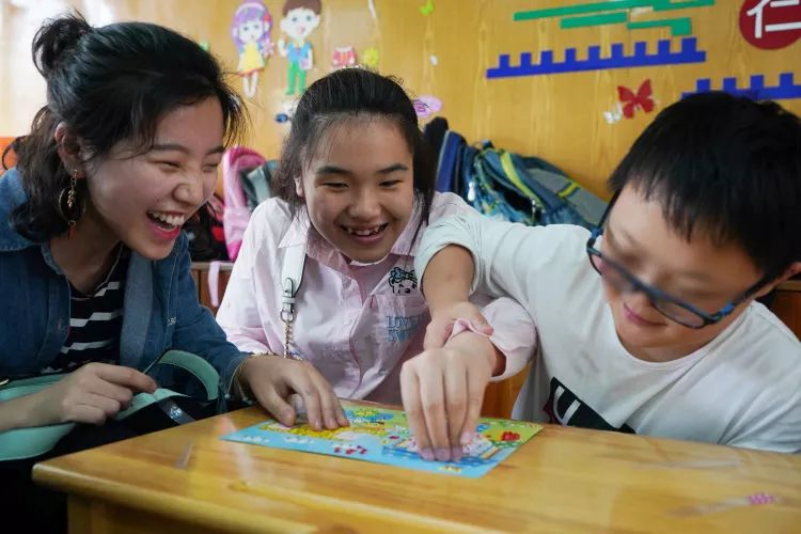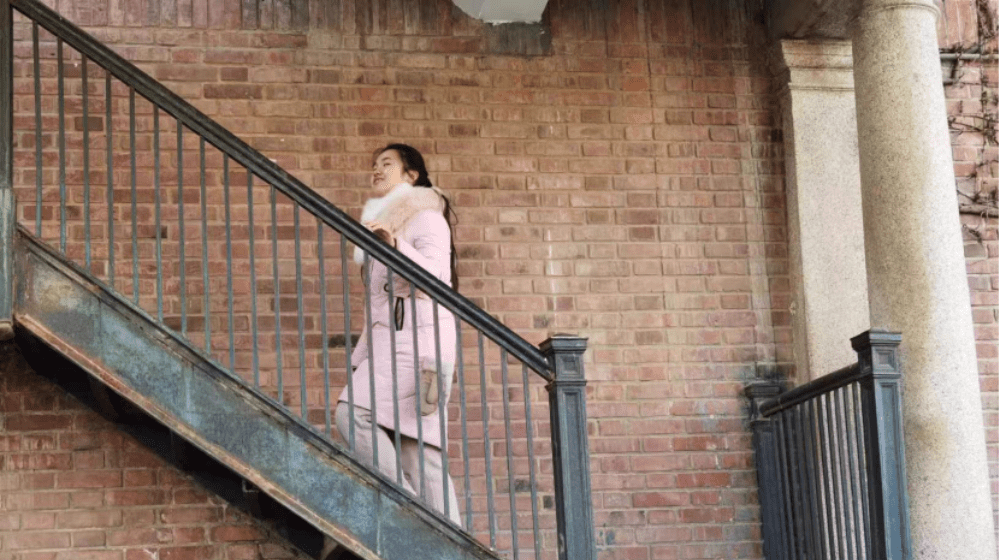Zhou Wenqing is a young researcher and educator. During her academic pursuits, she has faced numerous challenges posed by her visual impairment conditions. However, rather than being deterred by these obstacles, she chose to embrace them, using her experiences to fuel her passion for knowledge sharing and advocacy for persons with disabilities.
Overcoming obstacles on reading
As a visually impaired individual since childhood, Wenqing's passion for knowledge has persevered despite her visual limitations.
By utilizing screen readers and Braille materials, she compensated for her inability to read books and take notes like her classmates. She dedicated significant time to mastering their use, overcoming the psychological pressures stemming from her visual impairment.
Back then, I would spend hours each day listening to textbooks being read aloud by screen reader software. Sometimes, I’d listen continuously, although it might cause some physical discomfort, I believed it was worthwhile.
Demonstrating remarkable independence from a tender age, she embarked on her academic journey against all odds, earning the respect and acknowledgment of her peers.
An interest in disability and sexuality
Wenqing's academic journey began at Nanjing Special Education Normal College, where her interest in psychology and disabilities took root.
There, she became increasingly aware of the myriad challenges faced by persons with disabilities concerning psychological well-being and social identification. This realization struck a chord deep within her, sparking a profound interest in this marginalized group.
I reaffirmed the diverse difficulties persons with disabilities encounter in daily lives and the emotional struggles and growth. I understood that facilitating the integration of persons with disabilities into society is a responsibility I bear as a psychology student.
She later pursued graduate studies at Renmin University of China, focusing on disability and sexuality — a controversial choice at the time.
"Sexuality education is intimate and sensitive topic for everyone," Zhou Wenqing candidly shares.
"But for persons with disabilities, they may carry additional layers of complexity and sensitivity. My goal is to dismantle the prejudices and misconceptions surrounding disability and sexuality through my research, providing more comprehensive and scientifically-based sexuality education for persons with disabilities."
“Disability is no barrier to romance”
During her research, Wenqing encountered numerous interviewees whose stories went beyond heartwarming tales of love and affection. She learned about the experiences of many young persons with disabilities: some struggled to establish healthy intimate relationships due to societal prejudices; others, lacking sufficient knowledge about sexuality and intimacy, found it difficult to face themselves, thus shying away from pursuing love; and still others, unaware of healthy and positive relationships, found their intimate relationships in deep trouble.
However, there was one special couple, both visually impaired, who stood out. They worked together, exploring the endless possibilities of intimate relationships, and ultimately overcame numerous obstacles to achieve fulfilling love.
These stories deeply touched Wenqing, making her realize that the emotional needs and desires for love of young persons with disabilities also need to be seen and recognized by society. Simultaneously, she understood that maintaining a healthy intimate relationship requires not only emotional investment but also a correct understanding of sexuality and love.
These insights further strengthened her belief that "disability itself is not a barrier to romance; the real obstacles lie in people's prejudices and lack of knowledge."
“Love transcends sight”
Recognizing the importance of sexuality, she conducts lectures and workshops, fostering understanding and respect within the community and broader society.
In 2024, she served as a lecturer in a pre-college programme for visually impaired students, where she taught a sexuality education course under the theme "Youth Without Confusion," emphasizing gender, health and self-confidence building.

By combining narratives with interactive exercises and discussions, Wenqing guided students in understanding and recognizing their own bodies. During the teaching process, she utilized tactile teaching aids to enrich students' tactile experiences in learning, and flexibly adjusted her teaching methods through interaction with them.
"During one memorable lecture at a school for the visually impaired," Wenqing recalls, "a student asked, 'Master, can we, as blind individuals, love just like those who can see?'
Without hesitation, I replied:
Absolutely! Love is not limited by vision; it is deeply rooted in our hearts.
Beyond school activities, Wenqing organizes sexuality education workshops across multiple special educational institutions. Leading a team of volunteers, she visits classrooms and dormitories, providing personalized guidance and consultations on sexual health to adolescents.
These endeavors not only equip young persons with practical knowledge but also educate them on safeguarding their own well-being and showing respect to others.
At the "Love Without Barriers: Salon on Positive Relationships for Young Persons with Disabilities"organized by UNFPA China in November, she said, "many people have a stereotype that young persons with disabilities are labeled as physically disabled but mentally strong. In reality, they are the same young persons who have their own emotions and desires."
I hope that through our joint efforts, the seeds of youth will not wither in their infancy.


